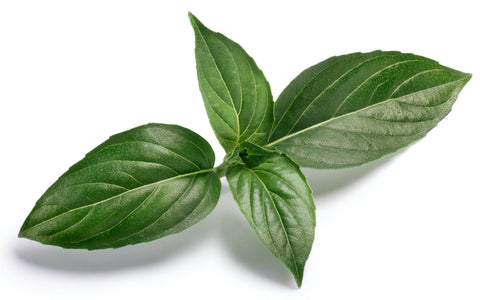Ashwagandha, ginseng, licorice root, rosemary, reishi mushroom, wild yam, rhodiola and holy basil are all adaptogenic herbs, also known as adaptogens. Adaptogens are a select group of herbs that help to support the body’s ability to support its stress response system. When I began my quest for wellness by way of alternative medicine, I started hearing more and more about adaptogens.
Adaptogens are found in the leaves and roots that come from plants. We know that plants fight stressors in their environment and adapt to their surroundings by drawing on information coded in their DNA. The thinking is that perhaps this plant DNA can do the same for people – making us more resilient and adaptable.
An adaptogen works like a tuning fork on your body; it helps bring your system back into harmony by nudging our bodies toward optimal health, or homeostasis.
These special plants have been shown to have a gentle but measurable influence on sleep, immunity, energy and stress levels, with some of them thought to support hormone health. They have also been shown to help people with cardiovascular health and certain neurological disorders.
David Winston, RH (AHG), herbalist, ethnobotanist, and coauthor of Adaptogens: Herbs for Strength, Stamina, and Stress Relief (Healing Arts Press, 2007) states that “no category of herbs holds more potential for overworked, overstressed Americans than adaptogens”.
Adaptogens aren’t a new discovery. Ayurveda and traditional Chinese medicine have been using adaptogens as part of the healing process for thousands of years. In this century, scientists during World War II began studying adaptogens as a way to help pilots and sailors function at their greatest level of ability.
Adaptogens were also used in Russia in the early 1960s as beneficial supplements for those involved in the Soviet space exploration program, Arctic and Antarctic expeditions, chess competitions, Olympic games, nuclear energy industry and many other stressful situations and conditions.
The study of adaptogens continues today with researchers finding such plants to have “an anti-fatigue effect that increases mental work capacity against a background of stress and fatigue”.
Different adaptogens affect the body differently. Here is a list of a few common adaptogens that offer some incredible benefits when taken correctly.
Common Adaptogens
Ginseng is one of the most popular herbal medicines in the world. There are two main types of ginseng: Asian (Korean) ginseng; and American ginseng. Each provide different benefits. American ginseng is considered less stimulating than its Asian cousin. Ginseng is a potent antioxidant that may reduce inflammation as well as decrease the severity of colds in adults. It is believed that ginseng can improve mood, boost endurance and treat cancer, dementia, fatigue, high blood pressure, menopausal symptoms, heart disease, erectile dysfunction and hepatitis C among others.

Rhodiola (Rose of Heaven) is a plant from Siberia and the medicinal compounds come from its root. People use rhodiola to reduce stress, boost alertness, lessen fatigue and combat depression. Rhodiola also appears to potentially help restore immune function, balance blood sugar and enhance fertility. Be aware that rhodiola is a stimulating adaptogen, so can cause insomnia in sensitive people.
Holy Basil is one of the mildest adaptogens in terms of stimulants. It has been used in India for thousands of years to treat colds, coughs and flu. According to Ayurveda medicine, this herb has many benefits and studies show it enhances health due to its antioxidant and anti-inflammatory properties. Holy basil offers stress support, strengthens memory and concentration and helps improve digestion. It also eliminates gas and bloating. Studies have shown that holy basil oil protects healthy cells from the toxicity of cancer treatment, such as radiation and chemotherapy. It has also been shown to help people with skin problems, asthma, fever, headache, heart disease, lung disorders, respiratory disorders, inflammation and may regulate blood sugar levels.


Ashwagandha is a calming adaptogen, making it ideal for people with anxiety, insomnia or nervous tension. I take ashwagandha about an hour before I go to sleep. There have been several controlled human studies that have shown ashwagandha can reduce stress symptoms (1, 2, 3). It can relieve muscle spasms and the herb also stimulates the thyroid, so it can be helpful for hypothyroidism. In several studies, ashwagandha has been shown to lower blood sugar levels through its effects on insulin secretion and sensitivity.
Of course, while there are many recognized health benefits to adaptogens, I must state that the FDA does not monitor the quality or purity of herbs and supplements. With this in mind, you should choose high quality, unadulterated products from a well-respected company. It is also a good idea to speak with your doctor before taking adaptogens.
Incorporate adaptogens into your diet as a tea, tincture or add to your morning smoothie or consider taking in supplement form.
Find out more about My Journey Into Wellness + supplements.








0 comments